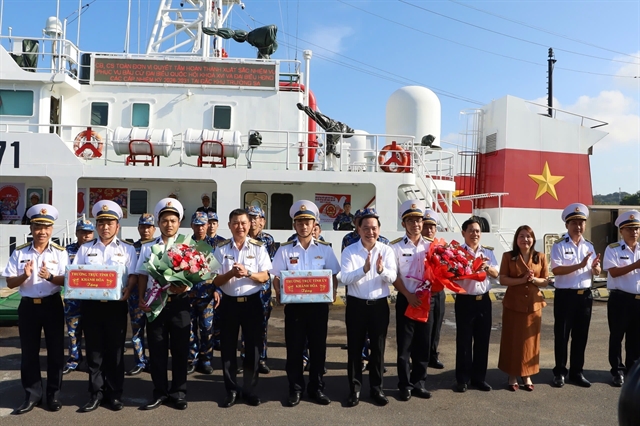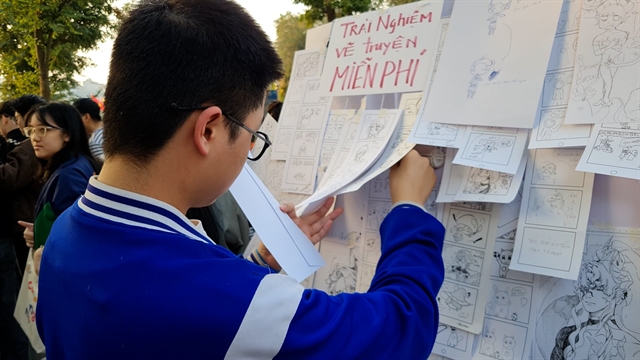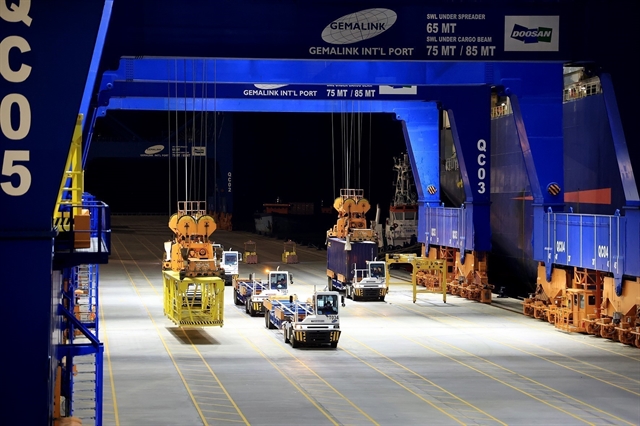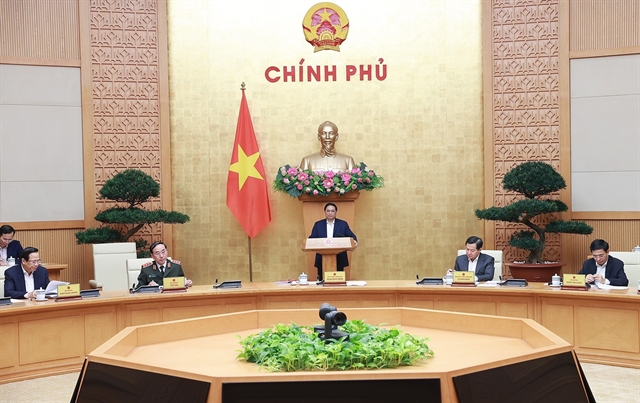 Politics & Law
Politics & Law

 |
| Handling goods at the Gemakink Port in Phú Mỹ township in the southern province of Bà Rịa-Vũng Tàu. — VNA/VNS Photo Hồng Đạt |
HÀ NỘI — Prime Minister Phạm Minh Chính has ordered persistent maintenance of macro-economic stability, keeping inflation in check and stimulating growth at the monthly cabinet meeting held on Friday in Hà Nội.
According to reports, socio-economic performance in the first two months continued on the positive recovery trend.
Imports and exports turnover in February grew by 67.1 per cent compared to January, up by 1.8 per cent compared to the same month of 2022.
Two-month export hit US$49.4 billion, with a trade surplus of $2.82 billion. Food and energy security are guaranteed.
Purchasing Managers' Index (PMI) has crossed the 50-point mark, rising from 47.4 in January to 51.2 in February, indicating a recovery and expansion in manufacturing and a rebound in new orders.
The consumer price index (CPI) increased by 4.6 per cent year-on-year; the State budget's revenue was estimated to reach 22.4 per cent of the estimate, up 10.6 per cent year-on-year.
Agriculture, forestry and fishery production is stable and growing.
While acknowledging the positive developments, the Government leader, however, stressed that Việt Nam’s macro-economic stability is not firm enough, inflation pressure is still high, credit growth is lower than in the same period last year, bad debt risks are increasing, and external instability is posing great impact on the country.
The industrial production index (IIP) in the first two months decreased by 6.3 percentage points, he noted, while large, traditional export markets are shrinking, orders and supply chains are affected.
Disbursed FDI in two months was $2.55 billion, down by 4.9 per cent over the same period.
He noted that the implementation progress of some policies of the three national target programmes and the Socio-economic Development and Recovery Programme is stalling.
Tourism activities, especially international tourism, have rebounded but are still not back to pre-pandemic levels, PM Chính said.
 |
| Vietnamese Prime Minister Phạm Minh Chính chairs the monthly Government meeting in Hà Nội on Friday. — VNA/VNS Photo Dương Giang |
Analysing the causes of the shortcomings and limitations, the PM said that policy response was sometimes not timely and effective, with buck-passing among some public officials, and insufficient coordination between several ministries, localities and agencies.
Cabinet members at the meeting said that with the international situation projected to remain complicated and unpredictable shortly, while challenges are shadowing advantages domestically, the pressure on macro-economic management would be huge.
PM Chính urged ministries, sectors and localities to actively follow, grasp, analyse and evaluate the situation and deliver appropriate solutions to balance exchange rates and interest rates, between inflation control and economic growth, between monetary policy and fiscal policy, and between domestic and foreign situations.
The Government leader also told ministers and local leaders to enhance discipline and resolve complaints and difficulties faced by people and businesses.
One of the central tasks of the year is to accelerate the disbursement of public investment capital, urgently allocate in detail the entire budget plan in 2023; strictly supervise and speed up the progress of key projects, especially traffic projects, PM Chính said.
The construction ministry is told to work on real estate market problems and push ahead with the programme to build one million social housing apartments for workers and low-income people.
The Ministry of Industry and Trade is urged to review and promote the development and restructuring of the industrial sectors, focusing on industries with potential, advantages, high added value, and sustainability; accelerate large-scale industrial projects; ensure the balance between supply and demand of essential commodities; bolster trade promotion activities; and expand export markets and supply chains. — VNS